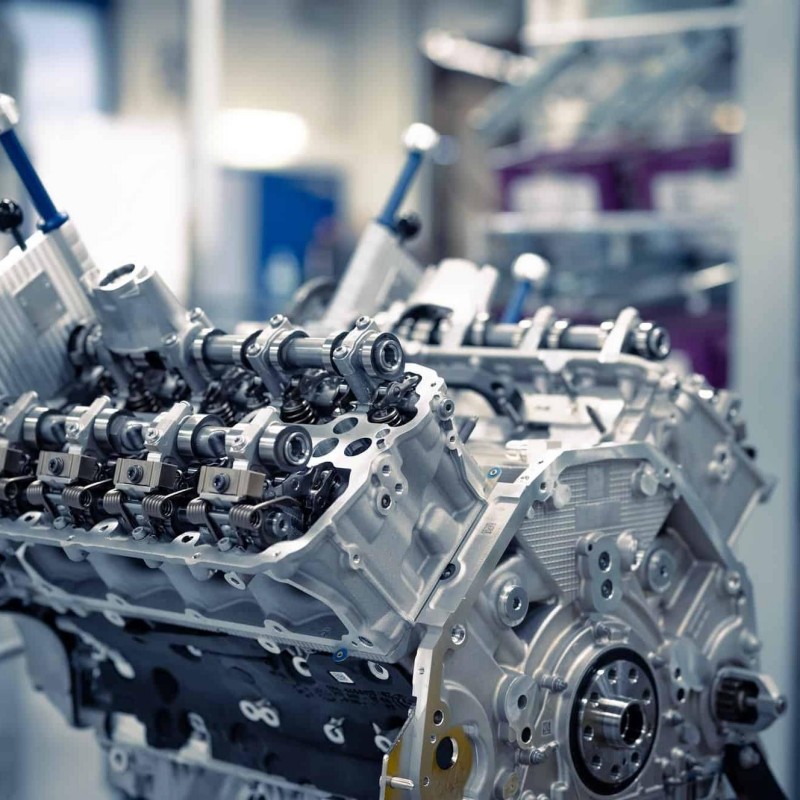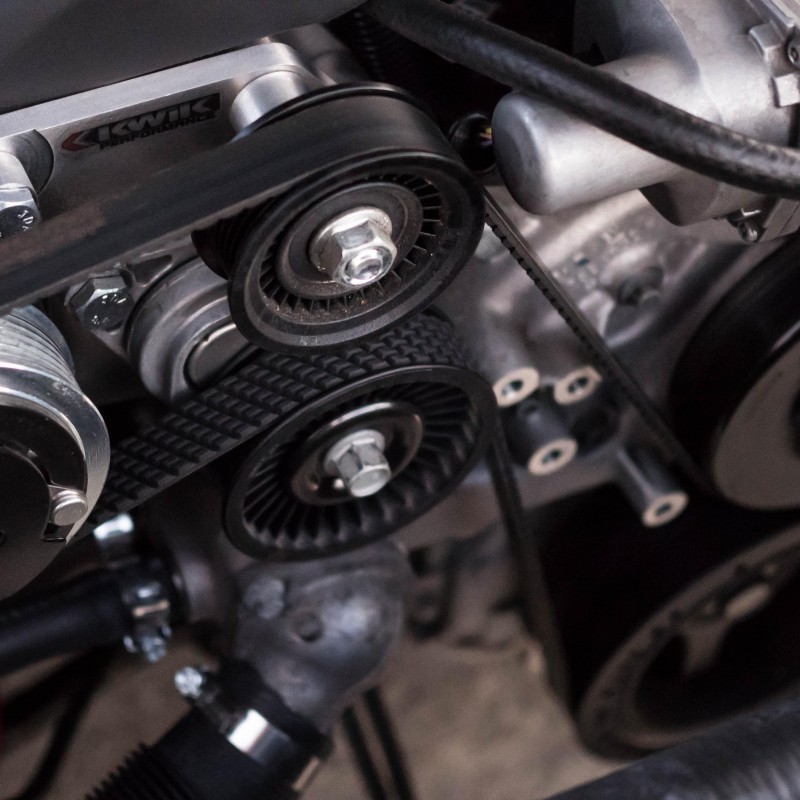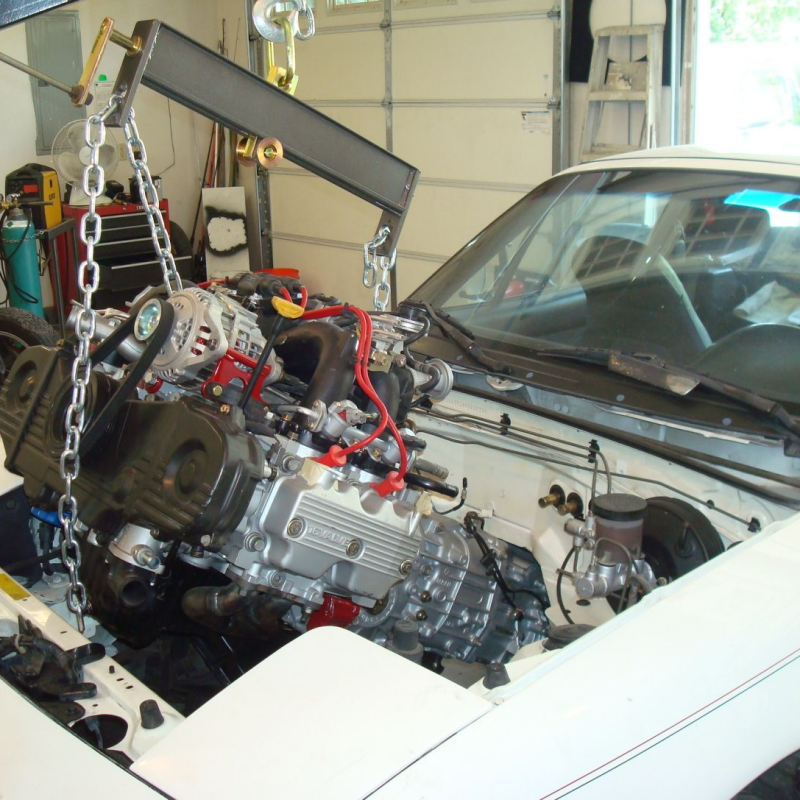When it comes to performance engines, the V8 has long been a symbol of power, performance, and rugged reliability. Yet, innovations in engineering have propelled us into a new era, introducing unique variants like the mini V8 gas engines. This compact engine design offers all the charm and performance characteristics associated with traditional V8s but in a smaller, more versatile package. These engines have become increasingly popular in various applications, from custom builds and drag racing to off-road vehicles and even marine applications. Understanding the intricacies of a mini V8 gas engine is essential for enthusiasts and professionals alike. In this comprehensive guide, we will explore the structure, benefits, applications, maintenance considerations, and much more related to the mini V8 gas engine. By the end of this article, you will have an in-depth understanding of what makes this engine type a preferred choice for many.

What is a Mini V8 Gas Engine?
Before delving into the specifics, it’s important to grasp what exactly a mini V8 gas engine is.
Definition and Design
A mini V8 gas engine is a smaller version of the traditional V8 engine, typically featuring a V-shaped configuration with eight cylinders. Unlike their full-sized counterparts, mini V8 engines are designed to be compact while still delivering impressive power and performance. These engines often maintain the same fundamental design principles as standard V8s, such as using a shared crankshaft and camshaft layout, but operate at lower displacement levels, typically ranging from 4.0 to 5.7 liters.
Construction Differences
While the core design principles remain consistent with traditional V8s, mini V8 gas engines utilize lighter materials and streamlined components to reduce overall weight. These modifications allow for easier installation in diverse applications while enhancing fuel efficiency without compromising performance.
Applications
Mini V8 gas engines have found their way into various sectors, including:
- Custom Builds: Car enthusiasts often opt for mini V8s in custom projects to create lightweight, high-performance builds.
- Racing: The compact design makes them suitable for competitive racing settings, such as drag racing and circuit racing where power-to-weight ratios matter.
- Off-road Vehicles: With their torque and power, mini V8s are a popular choice for off-road vehicles, offering reliable performance on rugged terrain.
- Marine Applications: Some boat manufacturers utilize mini V8 gas engines in smaller vessels for optimal power without excess weight.
Understanding the capabilities and versatility of a mini V8 gas engine provides valuable context for those looking to optimize their vehicles or projects.
Advantages of Mini V8 Gas Engines
Mini V8 gas engines come with a multitude of advantages that make them an attractive option for various applications.
Power-to-Weight Ratio
One of the standout features of mini V8 engines is their exceptional power-to-weight ratio. The lightweight design allows them to produce significant horsepower while maintaining manageable weight. This balance enables vehicles equipped with these engines to achieve impressive acceleration and handling.
Compact Design
The space-saving design of mini V8 engines makes them ideal for applications where traditional V8s would be too cumbersome. Whether in a compact race car or a space-constrained off-road vehicle, mini V8s fit seamlessly without compromising performance.
Fuel Efficiency
Thanks to modern engineering advancements, mini V8 gas engines often feature improved fuel efficiency when compared to their larger counterparts. By optimizing combustion and incorporating lighter materials, manufacturers have made strides in reducing fuel consumption.
Versatility
The versatility of mini V8 engines allows them to be used across various fields, ranging from automotive to marine applications. Enthusiasts can easily swap these engines into a myriad of custom builds or utilise them in industries where compact power is necessary.
Easier Maintenance
Due to their smaller size and simplified components, mini V8 engines can be easier to maintain compared to standard V8 engines. Accessibility to key components often allows for quicker and more straightforward servicing, aiding in reduced downtime for projects or vehicles.
Components of a Mini V8 Gas Engine
Delving deeper into the specifics, let’s explore the major components that comprise a mini V8 gas engine:

Engine Block
The engine block serves as the core structure, housing the cylinders, pistons, and crankshaft. Mini V8 gas engines typically use aluminum or cast iron for their blocks, leveraging lightweight materials that still maintain strength.
Cylinder Head
The cylinder head covers the cylinders and houses the valves. Mini V8 engines often feature dual overhead camshafts (DOHC) that provide efficient airflow and improved performance. The design of the cylinder head is critical for optimizing the combustion process.
Pistons and Connecting Rods
Pistons within the engine are responsible for converting the pressure from fuel combustion into motion. Connecting rods link the pistons to the crankshaft, translating that motion into rotary motion.
Crankshaft
The crankshaft is pivotal in converting the linear motion of the pistons into rotational force. In mini V8 engines, the design is often optimized to maintain strength while reducing weight.
Fuel and Air Intake System
The fuel and air intake system delivers the necessary mixture into the combustion chamber. Mini V8 gas engines may incorporate advanced fuel injectors designed for maximizing performance and efficiency.
Exhaust System
The exhaust system is responsible for expelling combustion gases from the engine. A well-designed exhaust system can enhance engine performance and provide a unique sound profile.
How to Maintain a Mini V8 Gas Engine
Owning a mini V8 gas engine requires diligent maintenance to ensure optimal performance and longevity. Here are some essential tips for keeping your engine in top shape:
Regular Oil Changes
Changing the engine oil at regular intervals is vital for maintaining engine health. Fresh oil lubricates components, reduces friction, and helps prevent overheating. Check the manufacturer’s recommendations for oil change intervals based on driving conditions and engine use.
Monitoring Fluid Levels
Maintaining proper fluid levels—including coolant and transmission fluid—is essential for optimal performance. Periodically inspect and refill as necessary to avoid damage and ensure efficient operation.
Air Filter Replacement
The air filter plays an important role in regulating airflow into the engine. A clean air filter improves airflow, contributing to effective combustion. Change the air filter according to the manufacturer’s recommendations or more frequently if operating in dusty environments.
Spark Plug Maintenance
Spark plugs ignite the air-fuel mixture, initiating combustion. Replace spark plugs as recommended by the manufacturer. Inspecting and changing spark plugs regularly can significantly enhance engine performance.
Fuel System Cleaning
To keep the engine running smoothly, consider periodic fuel system cleaning using specialized cleaners. This step can help remove deposits from injectors and restore efficient fuel flow, contributing to better performance and efficiency.
Radiator and Cooling System Checks
The cooling system is crucial for preventing overheating. Regularly inspect the radiator, coolant levels, hoses, and thermostat to ensure they are functioning correctly. Look for any signs of leaks that may indicate an issue.
Common Issues with Mini V8 Gas Engines
Despite their robust design, mini V8 gas engines can encounter a range of issues. Understanding these potential problems enables proactive measures to mitigate risks.
Overheating
Overheating can occur due to a malfunctioning cooling system, low coolant levels, or excessive strain on the engine. Regular checks can help identify signs before they become problematic.
Fuel Inefficiency
Fuel inefficiency may arise from dirty fuel injectors, a clogged air filter, or ignition system failures. Regular maintenance, like replacing filters and checking for leaks, can help maintain optimal efficiency.
Oil Leaks
Oil leaks can lead to reduced lubrication and may result in engine damage if left unaddressed. Regularly inspect for oil leaking around seals and gaskets and take immediate action if found.
Starting Issues
Difficulties in starting can stem from a range of problems, such as weak battery, faulty starter motor, or injectors. Regular battery maintenance can help avoid starting problems, and troubleshooting can pinpoint issues when they arise.
Unusual Noises
Unusual noises, such as knocking or pinging, should never be ignored. These sounds may indicate internal engine problems that require immediate attention.
Applications of Mini V8 Gas Engines
The compact design and impressive performance of mini V8 gas engines allow for a wide range of applications across various platforms. Below are some common uses:
Automotive
In the automotive industry, mini V8 engines are often favored for custom builds and high-performance applications. Their power-to-weight ratio and compact size make them ideal for sports cars, muscle cars, and racing vehicles.
Off-Road Vehicles
Off-road enthusiasts frequently opt for mini V8 engines in vehicles designed for rugged terrain. The combination of torque and compact size allows these engines to power lightweight off-road vehicles effectively.
Marine Applications
Mini V8s are sometimes utilized in smaller boats and personal watercraft. Their compact design, combined with reliable power delivery, is well-suited for various water activities.
Commercial Use
Some businesses leverage mini V8 gas engines in lighter commercial vehicles and work trucks. The power and reliability of these engines allow for practical applications in various industries.
Go-Karts and Recreational Vehicles
The performance characteristics of mini V8 engines make them popular in go-kart and other recreational vehicle builds. They provide the kind of acceleration and speed that enthusiasts desire.
Future Trends in Mini V8 Technology
As technology continues to advance, the future of mini V8 gas engines is poised for exciting developments. Here are some trends to watch for:
Hybridization
The integration of hybrid technology may offer a way to enhance the performance and fuel efficiency of mini V8 engines. Combining electric power with traditional combustion methods could yield significant benefits.
Improved Materials
The development of advanced lightweight and high-strength materials will likely further optimize mini V8 engines. Innovations in material science can enhance performance while simultaneously reducing weight.
Increased Efficiency
Expect to see continued advancements in fuel injection systems and combustion technologies, leading to improved thermal efficiency and reduced emissions. This will align with the growing focus on sustainability in automotive manufacturing.
Enhanced Electronics
Incorporating advanced electronic controls and diagnostics may lead to improved performance and user experience. Enhanced on-board systems can help monitor engine conditions in real time and adjust as necessary.

Conclusion
In conclusion, the mini V8 gas engine is a powerful and compact alternative to traditional V8 engines, offering exceptional performance and versatility for a wide variety of applications. Understanding how these engines function, their advantages, and the necessary maintenance practices is crucial for maximizing their potential. As technology continues to evolve, innovations surrounding the mini V8 design will pave the way for even greater efficiencies.
By being mindful of maintenance measures, regularly checking for potential issues, and understanding the various applications of mini V8 gas engines, vehicle owners can enjoy reliable performance for years to come. These engines symbolize a balance between power and practicality, and as the automotive landscape shifts toward sustainability and efficiency, mini V8 engines are likely to remain relevant in the industry.
Whether you’re an automotive enthusiast, a professional builder, or simply someone interested in engineering advancements, exploring the world of mini V8 engines opens doors to exciting possibilities in both performance and enjoyment on the road.
Tags: automotive engineering, engine technology, performance vehicles